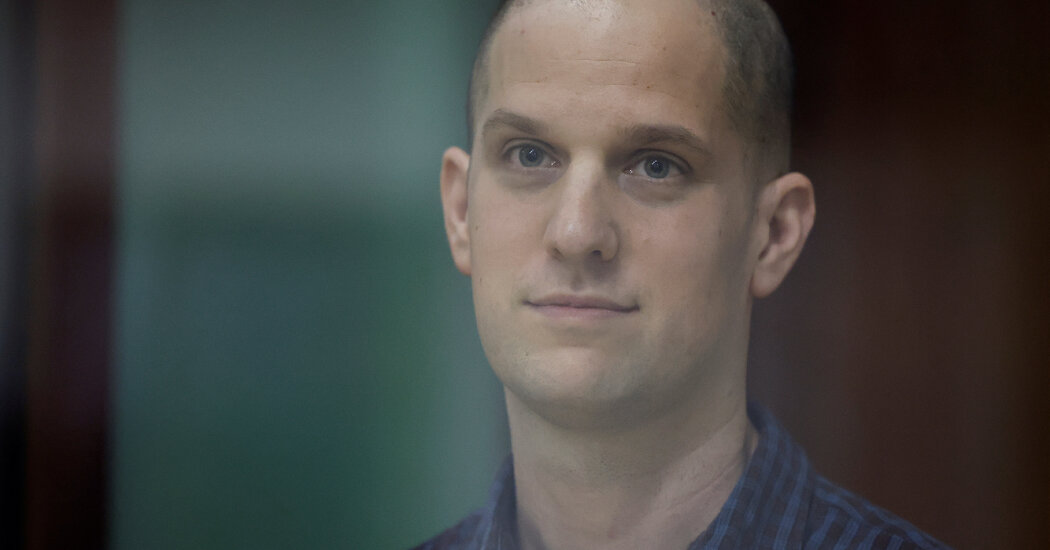
The Wall Street Journal reporter Evan Gershkovich was among 24 people released in a seven-nation, painstakingly negotiated deal that President Biden hailed as a triumph of diplomacy.
A prisoner swap on Thursday among seven countries freed the Wall Street Journal reporter Evan Gershkovich and two other Americans held in Russia, along with several jailed Russian dissidents, in a deal whose size and complexity has no parallel in the post-Soviet era.
The trade freed 15 people imprisoned by Russia and one by its ally Belarus, in return for eight held in Western countries, including a convicted assassin and several held as Russian spies. It was all the more remarkable for taking place two and a half years into Russia’s invasion of Ukraine, which the Kremlin has cast as a war for Russian survival against the United States and its allies who are arming and financing Kyiv.
The deal, culminating a long and elaborate web of negotiations behind the scenes, delivered a diplomatic victory for President Biden, who has long pledged to bring home imprisoned Americans and to support Russia’s ruthlessly repressed democracy advocates, journalists and war critics.
“Their brutal ordeal is over, and they’re free,” Mr. Biden said at the White House, speaking of the freed Americans, whose relatives flanked him. “Moments ago, their families and I were able to speak to them on the phone from the Oval Office,” he said, and he wished them “welcome almost home.”
The exchange took place at the international airport in Ankara, Turkey’s capital, and involved seven planes ferrying the 24 prisoners from the United States, Germany, Poland, Slovenia, Norway and Russia, according to the Turkish government, which has positioned itself as a mediator between Moscow and the United States throughout the war in Ukraine.
It was a triumph of a different sort for President Vladimir V. Putin of Russia, who has long highlighted his loyalty to Russian agents captured abroad. In nearly a quarter-century in power, he has leveraged the Russian law enforcement and court systems for political advantage, using them as tools of domestic repression but also for the prosecution of foreigners, sometimes on sham espionage charges or drug offenses, for use in prisoner swaps.
This post was originally published on this site be sure to check out more of their content.








